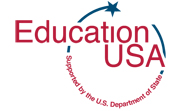Vietnam is becoming one of the hot areas for international student recruitment. With a young population, a rising middle class, and a cultural emphasis on education, many more Vietnamese families are considering education abroad for their children. The US is but one player in this burgeoning education abroad momentum. Click here to listen to a recent podcast with Michael Goldberg, Fulbright scholar who spent six months in Vietnam in 2012.
During a recent trip to Hanoi, Vietnam I had the pleasure of meeting with Huyen Nguyen, an EducationUSA advisor in the Hanoi office. I am extremely grateful for the time she and her colleague spent meeting with me. They helped to give me a deeper understanding of the Vietnamese educational climate and of EducationUSA in general.

My first impression upon arriving at the American Embassy annex that houses EducationUSA was the high level of security. Understandably the embassy requires high security to protect the employees and the interests of the American government. Upon entry I was required to surrender my passport, cell phone and camera. My bag was scanned and I walked through a security arch. Of course this level of security is necessary and reassuring, yet I wonder what it’s like for Vietnamese students who choose to work with EducationUSA. Upon each visit they, too, must experience this. I hope that this security scutiny doesn't serve as a barrier for entry for Vietnamese students who hope to engage the services of EducationUSA.
The EducationUSA office in Hanoi reminds me of a typical high school college counseling suite. Pennants line the entryway and university brochures, test prep guides and college guidebooks line the bookshelves. I met with Huyen in her office which struck me as a replica of my high school counselor's office. The entire setting is consistent with an American college counseling suite.
EducationUSA breaks down the process of counseling into five steps: research, application preparation, financial assistance preparation, visa advising, departure preparation. All of these services provided by EducationUSA are free of charge. Students have access to a wide range of resources through the EducationUSA website and office.
Huyen commented on trends in international student recruitment of Vietnamese students. On average she meets with 4-5 students per week. Approximately 60% of the Vietnamese students who are studying abroad do so at the undergraduate level. English preparation can vary tremendously-- some students have a very high competency in written and spoken English while other students will require ESL or other English support. Interestingly community colleges are embraced by Vietnamese families who value the cost-saving potential and English language instruction. Huyen noted that she has seen several community colleges publicizing their programs through brochures written in Vietnamese. There is a potential opportunity for community colleges who want to enter the Vietnamese market.
Approximately 30 American colleges or universities meet with students each year at the EducationUSA office. If you or your colleagues are thinking about contacting EducationUSA to do a program there are a few things you should keep in mind. College representatives are scheduled on a first-come, first-serve basis. Contact EducationUSA Hanoi as soon as you know of your travel plans. Furthermore the program that you conduct must be about a broad issue, rather than a typical college information session. Huyen welcomes visitors to speak about the admission process, financial assistance programs, specific academic programs, etc. A typical college information session is not welcomed at EducationUSA. Huyen hosts approximately 3-4 events per month, either American college led or led by EducationUSA.
When I asked Huyen what she thinks students and parents would find helpful she mentioned a couple of things. College websites or microsites written in Vietnamese would be particularly helpful for parents who often conduct research alongside their children. There are some community colleges publishing their brochures in Vietnamese. This, too, has been very helpful for parents.
The biggest question facing students is how to select the right school. Not surprisingly students are overwhelmed by the sheer volume of American colleges and universities to consider. Without a tradition of knowing American colleges, students are faced with daunting research possibilities. Huyen noted her choice of Northern Iowa University for her master's degree largely happened because a family friend was familiar with the school. Helping students to better understand the depth and breadth of American higher education opportunities will continue to be of utmost importance, particularly because Australian, Chinese, Malaysian and other international universities also hope to recruit Vietnamese students.
Meeting with Huyen helped me to gain a greater understanding of EducationUSA and it's role in Vietnamese student recruitment. For further information about EducationUSA Hanoi, click on the EducationUSA logo below.



